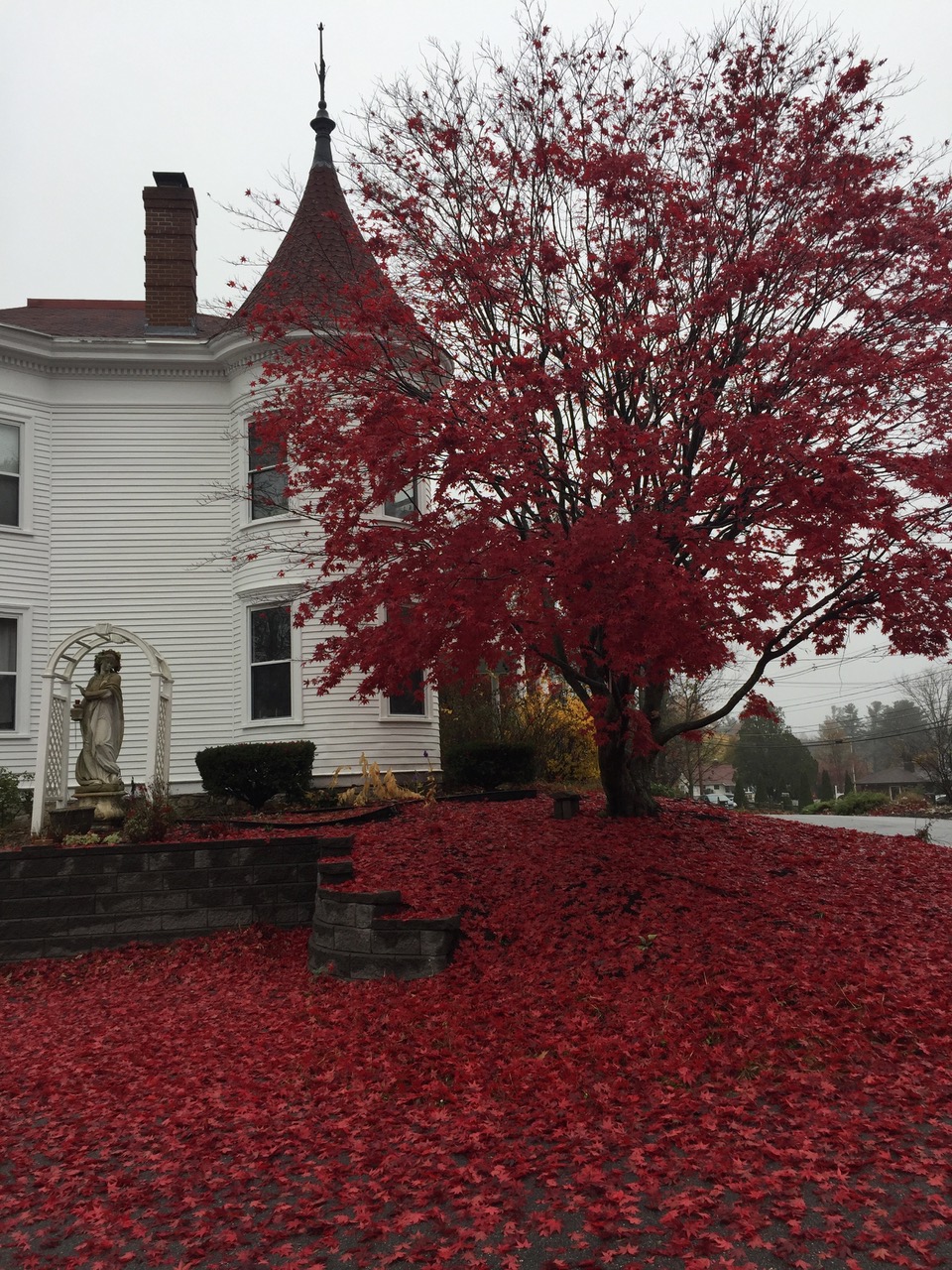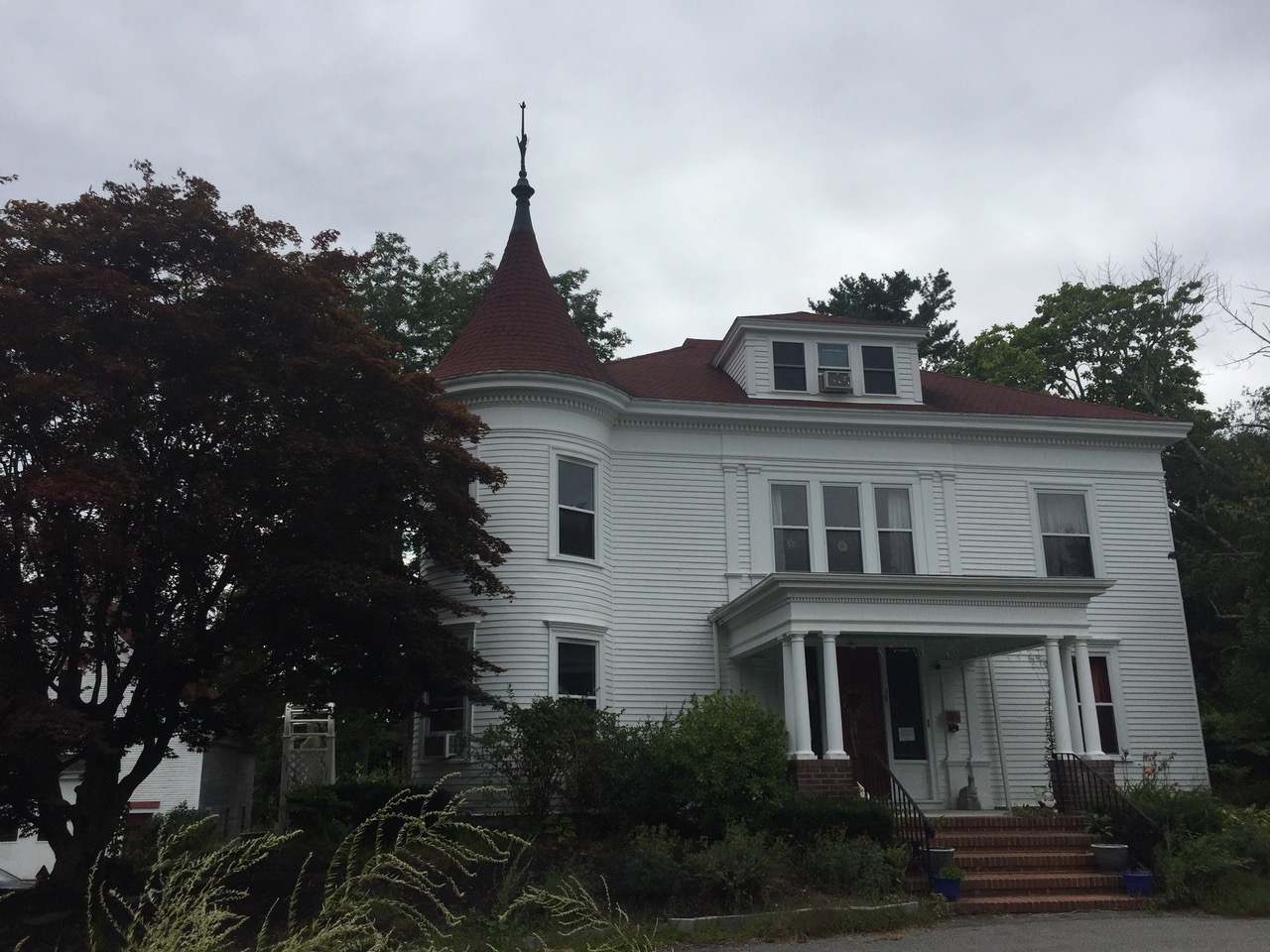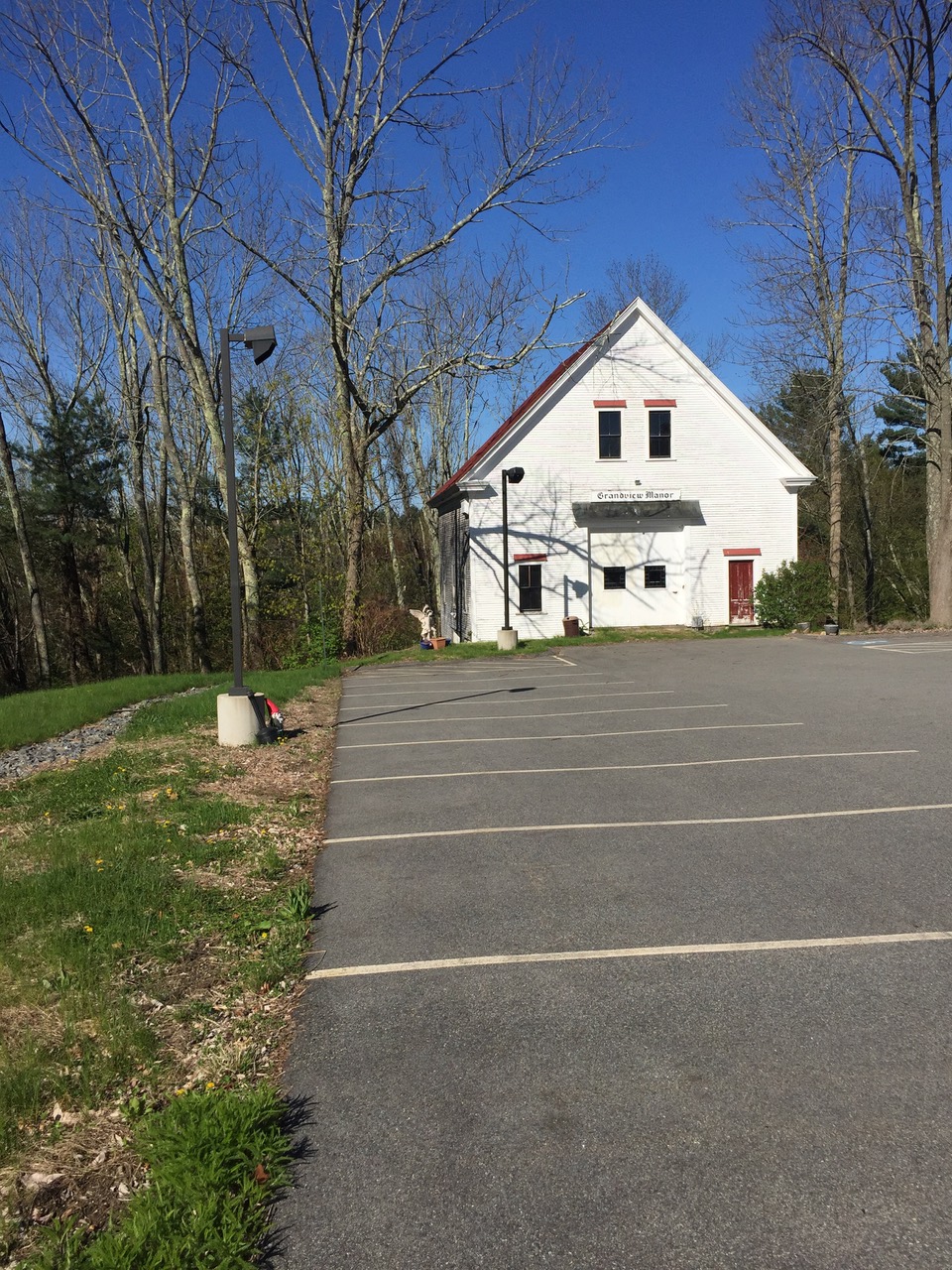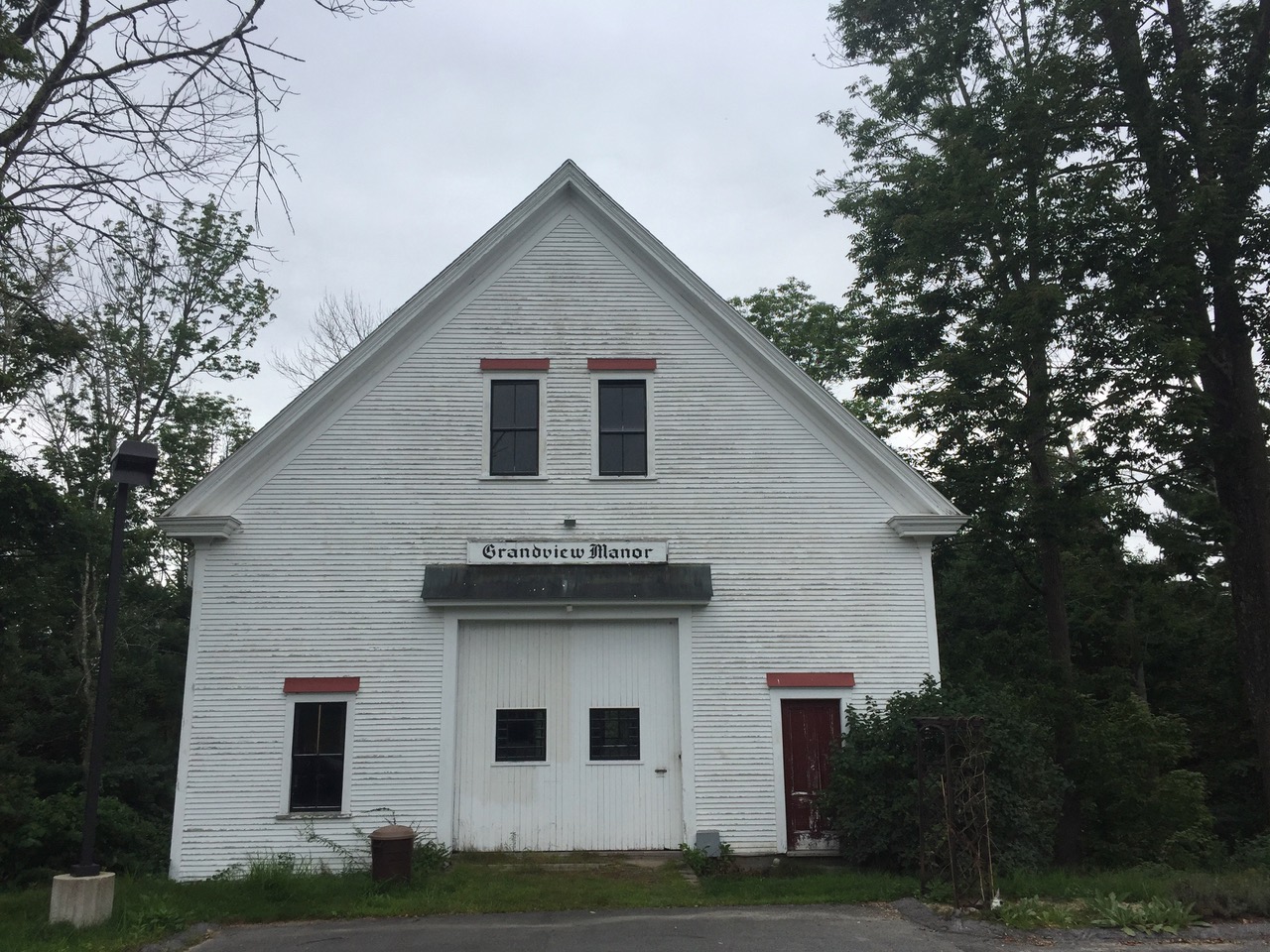
This is the second of a two-part interview that explores the creation and evolution of The Temple of Witchcraft which Penczak started in 1998, and was eventually co-founded with Steve Kenson, and Adam Sartwell in 2009.
TWH’s Jake C. Liebowitz talked with Christopher Penczak about the founding of his tradition, headquartered in Salem, New Hampshire, his journey on the path, and vision for the future.
TWH: Let’s start with the big question. What is the main mission of the Temple of Witchcraft?
Penczak: My vision for the Temple was to create a consistent community deeply steeped in strong magickal training and service in a structure that was an alternative to traditional coven structures. My own teachers told tales of a vision of the Age of Aquarius where the temples of the ancient gods would be restored in new ways and the wisdom of the Witch would be a part of society, and I believe in that vision. So I wanted to create something that was the next step.
I have a tremendous sense of gratitude for the coven based traditions, and to all those who have shared so freely in books, classes and public events. I know that traditional coven training was not the best fit for me and that in training many people who are deeply interested in both the mysteries and in service, not all are meant to “hive off” to create their own covens, classes, and sabbats, but there can be leadership and service in other ways. We have tremendous talents and skills for other aspects of community that often went unnoticed in the scheme of such structures, so I wanted to provide a structure to support those seeking to serve, to build, and to cooperate, within a Witchcraft context, rather than feeling they had to leave and find other community to better serve. Some amazing Witches are great organizers, environmentalists, advocates, and artists, but not necessarily teachers and ritualists.
I also wanted to create more support than I had in doing more traditional ministry work outside of a coven structure – prison ministry, rites of passage, pastoral care, legal support, and hospice work. Each time I feel we are reinventing the wheel, so having a cohesive community to carry some of this knowledge, train, share, and support would have been amazing when I was learning. So, I think it’s the duty of each generation to create the thing they wished they had, for the next generation.
TWH: In the first part of this interview you touched on how your family was involved in creating what was to become the Temple of Witchcraft. It sounded like a pretty organic process. Do you find that that experience helps you guide the continuing evolution of the Temple as both the Witch community and the community at large have changed over the years?
Penczak: I think by my own nature, I’m a very structured and linear kind of person, so in my ideal world, things would fit into nice, neat little boxes and be set. So, an organic structure is a personal challenge to me, but I feel is entirely essential to creating something that is living and strong and lasting. It’s messy, and personal and not a smooth and linear process, but it’s real and alive, and even when challenging, I wouldn’t change that foundation. You can have the pattern, but realize the fulfillment of a pattern will be different from the original vision, but a living thing, beautiful and bold and growing in ways you couldn’t plan for but would need later on in the journey.
I think behind the organic process of natural growth and filling needs and niches, there has been a guiding intelligence. Some organic things have worked out so well, so smoothly, in particular to the early teachings merging with the structures we have created, I realize I am just not that smart to have pre-planned it on any level, but it has worked. So, I do feel we are a “contacted” tradition guided by the cooperative spirits of our community working with us for these goals.
Without Steve and Adam, we wouldn’t have the “Three Rays” of Love, Power, and Wisdom philosophy guiding us. We wouldn’t have de-emphasized- but not eliminated- the binary of Goddess and God as High Priestess and High Priest, and established additional non-gendered images based upon the Seer, Sovereign, and Sorcerer. Without the influence of early members and now leaders such as Alix Wright and Chris Giroux, longtime friends who are like family, we wouldn’t have an openness to working with the gods and spirits who show up for individuals and groups, and might have tried to focus on a specific culture, region or time period in terms to mythos and theology. Without my parents’ support, we would probably have stayed a small closed group. It was my mother’s influence to make sabbats, particularly Samhain, available to the public as a doorway into the mysteries. That’s how we began, as a guest at a Samhain ritual. The organic process continues to remind me that it’s not my vision, and not even just the vision of the founders, my partners Steve and Adam and I, but our vision, the greater community. The amount you put into it will often dictate the strength of your voice to guide its structures and traditions.
TWH: What does the Temple of Witchcraft offer in the way of educational
experiences? How many students are currently studying with the Temple?
Penczak: We have a variety of educational experiences. We have both in-person and online classes, and many are simply one night, afternoon or day-long workshops, including guest teachers. We have Ivo Dominguez Jr. coming up soon, and in the past, we have had Courtney Weber, Kristoffer Hughes, Michelle Belanger, and Dolores Ashcroft-Nowicki. Most of our classes are by our own community members, and we host experienced and new teachers to the community at our “sabbat afternoon series” before our major sabbats in New Hampshire, a tradition followed by a few of our other distance groups as well.
Education is a major component of our yearly festival, Templefest, with a wide variety of classes and ritual experiences, as held in New Hampshire every August. Next year’s keynote will be a community favorite, Kristoffer Hughes, and past speakers and teachers have included Wendy Rule, Judika Illes, Ellen Dugan, David Salisbury, Dorothy Morrison, Mat Auryn, Jhenah Telyndru, Storm Faerywolf, Devin Hunter, Lilith Dorsey, Stephanie Taylor, and Raven Grimassi.
We do a number of retreats focused on specific themes. In the United States, we are cycling through elemental retreats, with the first one, the Fire Temple, in Sedona AZ in 2017 and we just completed the Sea Temple Water Retreat in October of 2019, at Mount Desert Island in Maine. Plans are underway for an Air Temple retreat in Colorado in 2021. We also have done retreats in the United Kingdom, with the theme of the four hallows. The cup was in Glastonbury in 2011 and the wand-staff in 2013 in Wales. Scotland will be next in 2020 for the sword.
Retreats and Templefest are open to the public but first announced to members of the Temple due to their limited size.
Our main mission is really our Mystery School, with both online and in-person teachers using the system and conferring membership and initiation into the Temple. We have a five-degree system of training, based upon the elements and a different mystery and style of Witchcraft, as outlined in my Temple of Witchcraft series of books, which are the textbooks. Along with the books, we have community-specific rituals, mythos, and themes that are shared with the students in the school. The public book is the theory and techniques, and the aspects that bring a cohesive community together evolved in the school. We teach an operative form of Witchcraft, where you not only read and report back, but experience, and we have required psychic experiences and spell work to do. The system and tradition really embody the paradox of freedom and formality. We do ask students to do things as written at least once and report back, and then they have the flexibility to experiment with the techniques.
We are also not rooted in specific cultural deities. We are not based in Celtic, Roman, Egyptian or anything else. We work with who shows up. We look to deities and spirits by function, and if the ritual or technique calls for a deity of the forge, we are open to whoever you choose, or better yet, who shows up, for you. You don’t have to do any devotional work to specific deities, though we do have some initiate only Temple specific spirits who have made themselves known to the community. Some gods are community favorites, showing up for many students. The egregore of the Temple is a cooperation between humans and spirit beings, and many different entities have contributed to it, so they are honored in many of our rites, but are not required by the students. Through once you study in the Temple, such beings might start to show up more. We are an occult multi-cultural wisdom tradition, looking to the traditions underlying many systems, and the experiences common to the magickal human experience. A Witch is often described in terms of orientation as much as religion, as we are a pretty irreligious religious organization, focusing on experience and technique over belief and orthodoxy.
The tradition deities are on a more cosmic level, looking to the Goddess as the Weaver and the Web, and the God as the Singer and the Song, and their child within each of us, as the Serpent of Wisdom. We work with a specific faery court, set of archangels, totems, and ancestors in our public and private group work, but at heart, the system is open-ended and invites a personal experience within the context of a mystery experience. Hecate has a special emphasis as Queen of the Witches, but really in her form of anima mundi, or cosmic soul, and the cosmic soul can manifest in many different forms and guises.
As to how many students are currently studying, that is a really great question and I don’t know if I have a clear exact answer for that, but doing a quick check we currently have almost two hundred students in the online mystery school over the first four levels, as we are taking a break from the fifth degree until 2021. For the in-person students, we have nearly that many, maybe closer to one hundred and ninety, spread among fifteen active teachers in three countries, including the USA, Canada, and the UK. The number of students is always higher at the start of the semester year than the end, as we do not graduate anyone who does not complete the work. Some will ask me how we can get our graduate numbers “up” and are surprised to hear me say I don’t care about the numbers. We offer the experience and training. You can choose to do it or not do it. We encourage but do not coerce. Nor do we make many exceptions if you don’t do the work. If you communicate your circumstances to us we can make some accommodations, but in general, the work is the work.

Temple of Witchcraft – courtesy of ToW
TWH: Are you seeing an increase in inquiries as more and more people
become interested in Witchcraft?
Penczak: It fluctuates. Not everyone riding the wave of popularity in Witchcraft necessarily is looking for formal training or a large community. They are not looking for an esoteric order to join. Most are just exploring. So, we get a lot of people who check an event out and then we might not see them for a while, and then they return. It’s like a little dance. Some will go on to study, but most won’t. We have core sabbat members who attend rituals but don’t necessarily study, and then we have the body of students and initiates of the five degrees. We provide support on a variety of levels.
Last year we had a very large group of first-year online students, but also had a high attrition rate, almost half, for a variety of reasons. One of the major ones is the realization, even though we say it everywhere, that it’s a monthly class with homework, not just a reading-socialization class, or a go at your own pace course. The pressure to do builds up an energy that helps propel the student into the deeper work. It’s hard enough to do such training online, but letting people fall in and out of it hasn’t led to good results when we have tried it in the past, so part of that organic approach is working through different ways and ideas of teachings, and see what is actually effective and what do we want to do, as leaders. I know my teachers put me under a certain amount of pressure, always with the option I could walk away, but my desire and will to be there kindled the magickal fire within me.
TWH: What kinds of events (rituals, sabbats, workshops, etc) does the Temple of Witchcraft host?
Penczak: We host a wide variety beyond the classes, retreats, and school. In New Hampshire, we offer full Moon esbats, larger sabbats, and “advanced” dark Moon discussion groups and classes. They used to be restricted to ministers, but we opened them up to second degree and higher. We have quite a few ministers offering sabbats in other locations, such as California, Missouri, Texas, Connecticut, and Nova Scotia. We have a Women’s Mystery group, where all identifying as women are welcome, and an ongoing Divine Masculine class is welcome to all. We also have a“Stewards of the Temple” class going on for three years, with the students building trails and shrines on our New Hampshire property as part of the class training. We also have a number of online groups such a healing study group, astral travel study group, Witch’s Runes study group, and queer mysteries study group.
TWH: Are these events open to the public?
Penczak: Many are. We have some events that are open to the public, and one of our membership levels is called “General Member” meaning you have attended three or more events and been publicly recognized with a simple consecration ceremony at a public ritual. We have some events that are restricted to initiates only, or by a specific degree in the school, particularly advanced classes, as we won’t cover the basics needed and want to make sure everyone is safe and had a good foundation of understanding. But most of our ritual events are open to the public, as is our festival and retreats. Most of the continuing study groups are restricted to members or initiates.
TWH: In a previous Wild Hunt article, you provided some terrific information about the Temple of Witchcraft’s plan to build a community center on your property in Salem. Would you briefly summarize what the plan is?
Penczak: Currently we own an old Victorian-style house built in 1898 with a barn and a small cottage on little more than five acres with a stream and two ornamental wells on it. Our classroom space is on the ground floor of the house, along with an administrative office and small ritual supply shop open during events only. Around the house are small shrines and magickal gardens.
Our intention has always been to turn the barn into a community center, with ritual/education space and rooms for healing and pastoral care. We are currently proposing our plans to the Planning Board of the Town of Salem, NH and once approved, we’ll be able to get accurate estimates to then start serious fundraising. Sadly we have learned that the barn is not up to code for a public space, so we are tearing it down to build a new building with a similar aesthetic, but we’ll be able to put in an elevator and make sure it is modern and up to code and accessible to all.
TWH: How do you envision the Temple of Witchcraft’s role in the community going forward?
Penczak: I’m sure it will evolve organically like everything else, to help meet the needs and fulfill the wills of the community. I feel a big life mission forme is getting the New Hampshire property established fully and developed, and then after that, as not only a national but now international organization, create more resources in different locations. I would like to see in the multiple generation vision of it helping create Witchcraft library and museum, semi-monastic artistic retreat center, hospice-healing center and even a little Witch Village not touched by Witchcraft Trial violence and aligned in sacred geometry and seasonal pageantry. But I also have to realize I won’t necessarily be around for all of that and be open to the visions and creative impulses of the next generation of leaders.
In my lifetime, I’d like to see our ministerial education and support grow more robust. We are starting to have more guest teachers in that area, with topics such as conflict mediation, pastoral care, leadership and finance in the works. I’ll also be doing a several month-long “professional witch” course that will have a lot of the things I’ve learned doing this full time as my vocation in the last twenty years. I’d also like to see other voices in the community write more, and add to the body of lore and teachings on a magickal level. With the open-ended nature of our system and tradition, there is a lot of room for multiple voices and perspectives while also remaining in a cohesive community.
Learn more about the Temple of Witchcraft here.
To learn more about Christopher Penczak go here.
The Wild Hunt is not responsible for links to external content.
To join a conversation on this post:
Visit our The Wild Hunt subreddit! Point your favorite browser to https://www.reddit.com/r/The_Wild_Hunt_News/, then click “JOIN”. Make sure to click the bell, too, to be notified of new articles posted to our subreddit.




